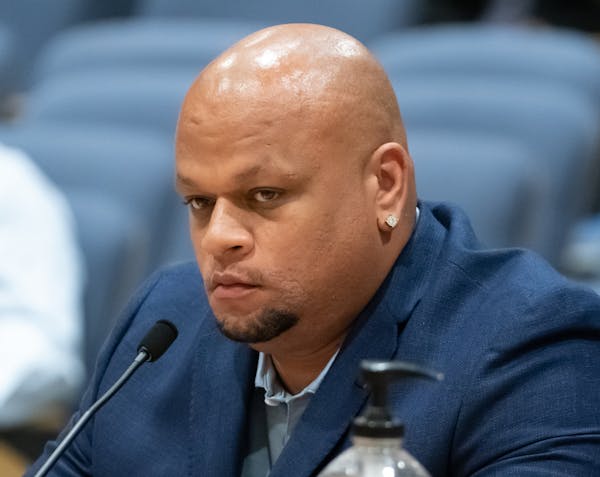More than 100 speakers on Wednesday expressed their views about a proposal that could lead to the end of the Minneapolis Police Department, most of them supporting putting the question before voters in November.
A smaller group speaking at the virtual public hearing before the Minneapolis Charter Commission opposed such a move.
Up for consideration now is a plan that would change the city charter, essentially its constitution, to end the requirement for Minneapolis to maintain a police department. Instead, the city would create a community safety department that could include officers but wouldn't be required to do so.
Many of the people who spoke in favor of the plan said they believe the city charter presents an impenetrable obstacle to reform and that residents of color — who are disproportionately subjected to officers' force — can't wait for change.
"The window of opportunity is small, and I need for you to do your jobs," said Ebony Chambers, with the Barbershops & Black Church Cooperative of ISAIAH, a coalition of religious leaders.
Trevor Cochlin, who lives in the Powderhorn area, urged the commissioners to allow the proposal to head to the November ballot "so that we can all have a voice in creating a future."
"I want to remind this body that you are not the arbiters of that conversation and that process and it would be a disservice to our democracy if this body would stand in the way of that," Cochlin said.
Cynthia Gomez, who teaches in north Minneapolis, talked about seeing "the MPD's contempt for our communities taken out on the bodies of my students" and in the killing of George Floyd and the following days.
Gomez urged the commissioners to allow the proposal to stand for a vote. "We want a say in the future of public safety in our city. It would be irresponsible to deny us the chance."
Many who spoke against the proposal said they feared it was too vague, or that the City Council members who drafted it hadn't done enough to consult with a wide variety of Black community leaders.
"City Council did not meet with the African American community. The Charter Commission: Do not be bullied by these antics," said Al Flowers, who added that he feared some groups had organized to dominate the hearing.
A majority of the City Council has described amending the charter as a way to change policing after the death of Floyd in May. But doing so will require cooperation on the part of the Charter Commission, a group appointed by a judge, whose review of the proposal could keep it off the November ballot.
More than 200 people signed up to speak during Wednesday's hearing. The city has also received more than 5,000 written comments. The city hasn't yet released those, saying it is still reviewing them to ensure they don't contain private data.
While it's not yet possible to determine how the public as a whole feels about the amendment, Wednesday's hearing provided a glimpse into what the city's elected officials and independent Charter Commissioners are hearing as they debate whether to advance the proposal to the November ballot, for consideration by voters.
Charter Commission Chair Barry Clegg said people who did not get to speak Wednesday can contact the city and asked to be placed at the top of a list for a second public hearing, which will be held July 21.
The Charter Commission must decide whether to recommend the plan head to the ballot, reject it or offer an alternative. It could also choose to take up to 150 days to review it, overshooting an Aug. 21 deadline for submitting items for consideration this year. Many speakers urged against that.
If the proposal passes in an election, the mayor and City Council would make decisions about specific police staffing levels in separate processes.
Earlier this week, in a separate public meeting, Minneapolis Police Chief Medaria Arradondo offered his first public thoughts on the charter amendment. The chief said he is open to changing how the city responds to some types of calls, if there is a way to do so safely.
"There are absolutely calls that do not require armed men and women to respond to," he said.
At the same time, he cautioned against reducing police while the city is struggling to respond to a series of violent shootings.
The city currently has about 825 officers, though it's authorized for more. The charter sets minimum staffing based on population, which currently requires a force of about 730.
"I don't believe that 730 number would be adequate with everything that is transpiring right now," he said.

Want to share info with the Star Tribune? How to do it securely

'Safe recovery sites' would offer syringes, naloxone and more to people using drugs. The plan could be in peril.
New Minnesota GOP leaders seek peace with party's anti-establishment wing

Who is Republican Lisa Demuth, Minnesota's first House speaker of color?

